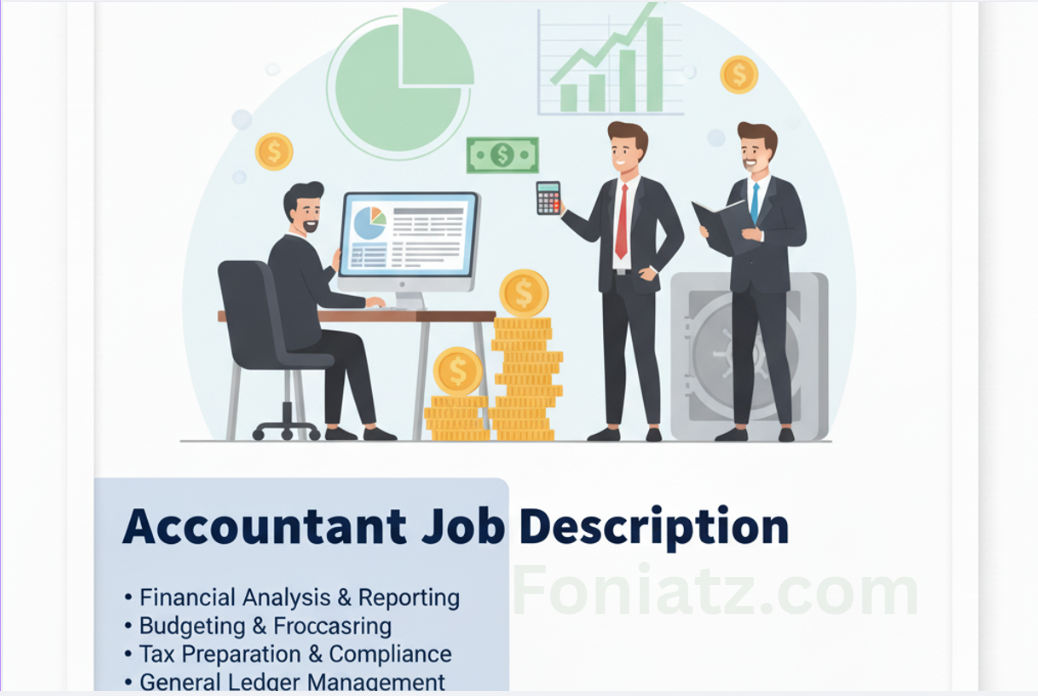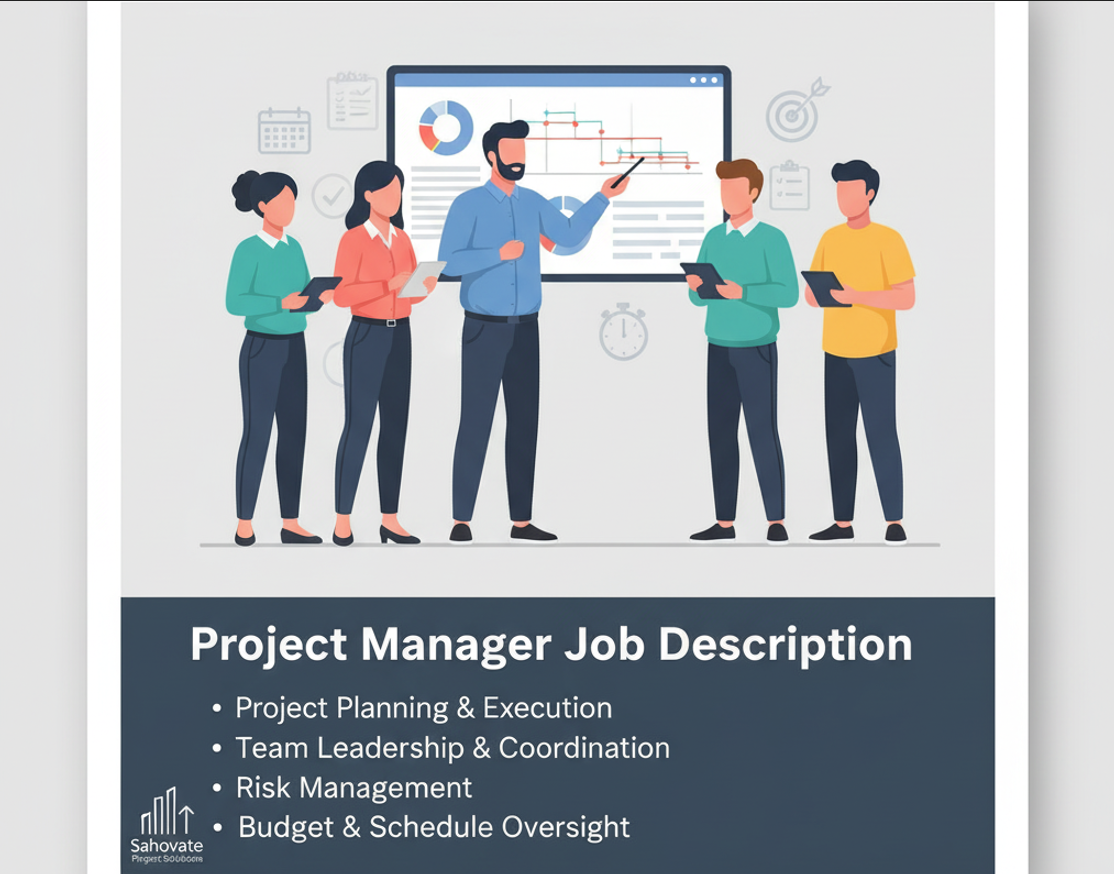Accountant Job Description: Duties, Education & Career Path
Hello, amazing readers! We’re thrilled to have you back at Foniatz.com, your go-to spot for straightforward career advice right here in Tanzania. If you’ve ever wondered about a stable and rewarding job in finance, accounting might be the path for you. In this article, we’ll break down the accountant job description in Tanzania, including everyday duties, the education you’ll need, and how to build a strong career. Our goal is to make this info easy to follow so you can take confident steps toward your future. Let’s jump in!
What Does an Accountant Do in Tanzania?
Accountants serve as the financial guardians for businesses, organizations, and individuals across Tanzania. They keep track of the money coming in and going out, ensuring everything is accurate and follows the rules. In a country like ours, with growing industries in mining, tourism, and agriculture, accountants help companies stay on top of their finances while complying with local laws, like those from the Tanzania Revenue Authority (TRA).
Whether you’re working in a busy office in Dar es Salaam or supporting a non-profit in Arusha, your role ensures smooth financial operations. It’s a job that combines numbers with real-world impact, helping businesses grow and communities thrive. If you enjoy detail-oriented work and problem-solving, this could be a great fit.
Key Duties of an Accountant
Accountants in Tanzania handle a mix of daily tasks and bigger-picture responsibilities. Here’s a simple look at what you might do:
- Managing Financial Records: Keep detailed records of all transactions, including sales, purchases, and payments. You’ll use software to post journal entries, handle accruals, and reconcile accounts to make sure everything balances.
- Preparing Reports: Create monthly, quarterly, or annual financial statements, such as income statements, balance sheets, and cash flow reports. These help bosses make smart decisions about budgets and investments.
- Tax and Compliance Work: File taxes, including VAT, income tax, and PAYE, while ensuring the company follows Tanzanian regulations. You’ll also prepare for audits and keep records for government checks.
- Budgeting and Analysis: Assist in planning budgets, tracking expenses, and analyzing costs. For example, in a manufacturing firm, you might review project costs or advise on cost-saving measures.
- Payroll and Invoicing: Process employee salaries, manage payables and receivables, and issue invoices. In smaller businesses, you may also be responsible for handling petty cash.
- Team Support and Advice: Collaborate with managers to provide financial insights, such as forecasting profits or identifying risks. Senior accountants may oversee junior accountants or lead teams.
Junior accountants typically begin with basic recording, while senior accountants assume leadership and strategic roles. No two days are precisely the same, but accuracy is always key!
Education and Qualifications Needed
Getting started as an accountant in Tanzania requires solid education and certifications. Here’s what most employers look for:
- Basic Education: A strong foundation starts with a Certificate of Secondary Education (CSEE) with passes in Math and English. From there, aim for a diploma or degree.
- Higher Education: Most jobs require a bachelor’s degree in Accounting, Finance, or a related field from institutions such as the Tanzania Institute of Accountancy (TIA) or the University of Dar es Salaam. Diplomas from TIA in Accountancy (NTA Level 6) are great for entry-level spots.
- Professional Certification: To really shine, get your Certified Public Accountant (CPA-T) from the National Board of Accountants and Auditors (NBAA). This involves passing exams after your degree and at least three years of practical experience. For starters, the Accounting Technician (ATEC) certificate is a helpful stepping stone.
- Skills to Have: Be good with numbers, software like QuickBooks or Excel, and have attention to detail. Soft skills, such as communication and ethics, are essential, particularly when interacting with clients or teams.
- Registration: Once qualified, register with NBAA to practice legally. Foreign qualifications? Get them verified by the Tanzania Commission for Universities (TCU).
Internships at firms or banks during studies can give you that edge. Many start as trainees and build upon that foundation.
Career Path for Accountants in Tanzania
Building a career in accounting is a steady and rewarding path with numerous opportunities for growth. Here’s a typical roadmap:
- Entry-Level (0-2 Years): Begin as a junior accountant or accounts assistant, focusing on data entry and basic reports. Gain hands-on experience in small firms or NGOs.
- Mid-Level (3-5 Years): Move up to accountant or senior accountant roles, handling complete financial cycles, taxes, and audits. With CPA-T, you could specialize in management accounting or internal auditing.
- Senior-Level (5+ Years): Become a finance manager, chief accountant, or consultant. Lead teams, advise on strategy, or even start your own firm. Opportunities exist in major sectors, such as banking (e.g., CRDB), or international organizations like the World Bank.
To advance, continue learning through NBAA’s continuing professional development (CPD) and network with others at events. Many accountants advance to executive roles or transition to related fields, such as finance consulting. As Tanzania’s economy continues to grow, skilled accountants remain in high demand.
Salary Expectations in Tanzania
Salaries for accountants vary by experience, location (with higher rates in Dar es Salaam), and employer type. Based on 2025 trends from job sites and surveys:
- Entry-Level (0-2 Years): TZS 500,000 to TZS 1,000,000 per month (about $180-$360 USD). This often includes training perks.
- Mid-Level (3-5 Years): TZS 1,200,000 to TZS 2,000,000 per month ($430-$720 USD), with bonuses for good performance.
- Senior-Level (5+ Years): TZS 2,500,000 to TZS 4,000,000+ per month ($900-$1,450+ USD), especially in private firms or multinationals. Top earners can reach TZS 4,700,000 after 30 years.
Add benefits such as health insurance, transportation allowances, or pensions. Freelancers or those with CPA-T often earn more through consulting.
Opportunities and Challenges
Tanzania’s booming sectors offer numerous job opportunities, ranging from startups to government projects. You could work on exciting things like sustainable finance or tech integrations. Challenges? Keeping up with changing tax laws or handling tight deadlines can build excellent skills.
Join groups like the Tanzania Institute of Accountants for support and growth.
Thank You for Visiting Foniatz.com – We’re Your Career Partner!
We’re grateful that you took the time to visit us at Foniatz.com, the best place for warm, reliable advice tailored to Tanzanians like you. As your top resource for building a fulfilling career, we’re here to support every step of your journey. Whether accounting is your next big move or you’re just exploring, we wish you tons of success and smooth paths ahead. Please drop a comment with your questions, and feel free to return for more information.
Best wishes from our caring team!
Also Read;




